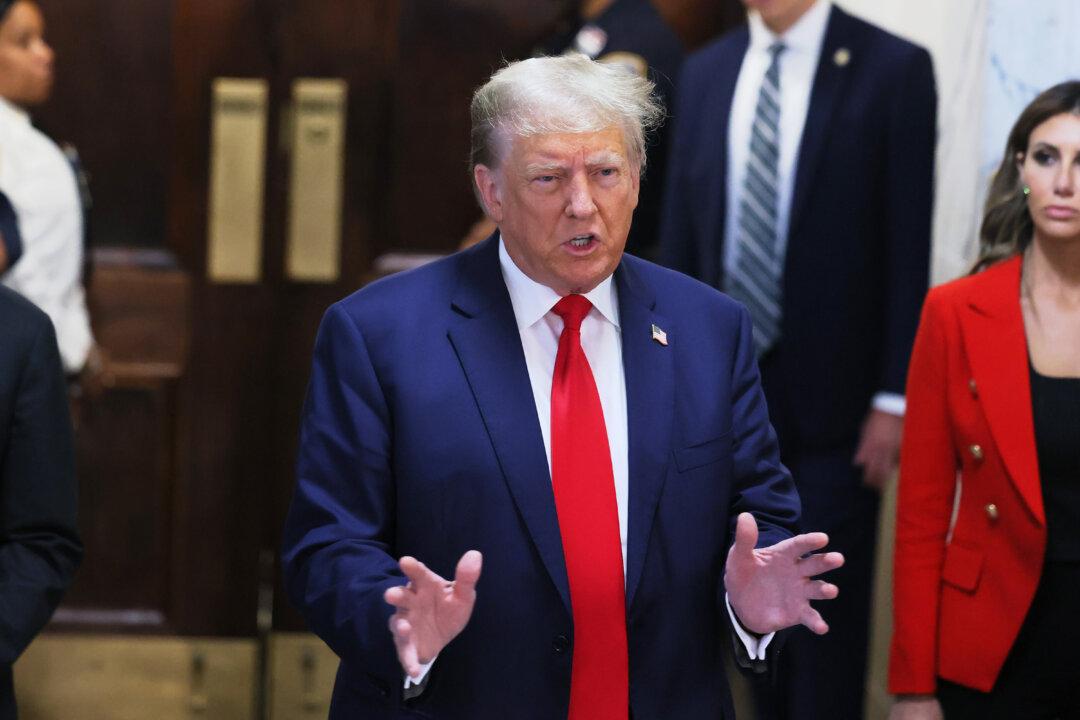The U.S. Supreme Court is hearing arguments on Nov. 1 surrounding whether the federal government is infringing on the First Amendment by blocking an attorney’s request to trademark an insult of former President Donald Trump.
The case, Vidal v. Elster, involves a California-based attorney and activist Steve Elster who asked to trademark the phrase “Trump Too Small,” which he planned to sell on T-shirts. The phrase is a double entendre emanating from an exchange between then-candidate Trump and Sen. Marco Rubio (R-Fla.) during one of the 2016 Republican presidential primary debates.





